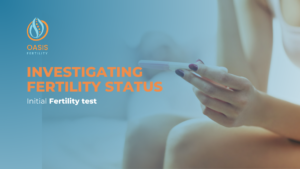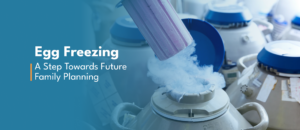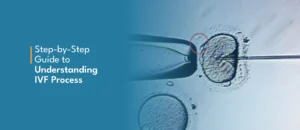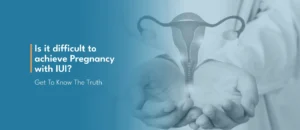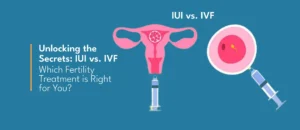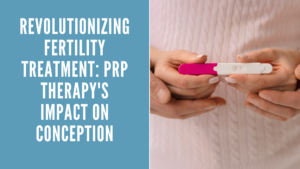Is it difficult to achieve Pregnancy with IUI?: Get To Know The Truth

We all share the desire to experience parenthood, a universal journey that transcends gender identities and orientations. Infertility can be a challenging road for individuals and couples, regardless of sexual orientation. For those facing the emotional struggle of infertility, the dream of having a child can seem distant. Yet, amidst the challenges, there is hope and support available for everyone. Let’s acknowledge the diversity of paths that lead to parenthood and embrace the hope that exists for each unique story.
With numerous methods of conception available as of today, medical science and technology are offering miracles that are fulfilling the long-drawn desires of becoming parents for many.
IUI, also known as Intrauterine Insemination, is one of them. But one question that might pop up in your mind is: Is it hard to get pregnant with IUI?
Well, the answer to the question can only be delivered through some IUI-related facts!
Let’s first understand the IUI procedure
Intrauterine Insemination (IUI) is a fertility treatment that facilitates the union of sperm and egg within the female reproductive system, elevating the chances of successful conception. This method involves the introduction of carefully prepared sperm directly into the uterus, bypassing certain barriers that may impede natural fertilization.
IUI is a versatile and an inclusive option for couples facing various fertility challenges, ranging from male factor infertility to unexplained fertility issues in either partner, or same-sex female couples attempting to be parents.
The procedure is minimally invasive, and its accessibility and effectiveness make it a popular choice for couples seeking assisted reproductive technologies on their path to parenthood.
The primary goal of this procedure is to increase the number of sperm that reach the fallopian tubes, increasing the chances of fertilization.
Timing an IUI procedure: One of the primary success factors of pregnancy with IUI
According to experts, the best time to perform IUI is before ovulation, specifically 12-24 hours before an egg is released. The inseminated sperm can survive in the reproductive tract for five days, so this timeline ensures it is ready for the egg’s introduction. The treatment is added either on top of the patient’s normal cycle or in a stimulated cycle, and they should be able to try once a month.
So, how long does it take to get pregnant after an IUI?
The time it takes to get pregnant through Intrauterine Insemination (IUI) can vary, but many individuals achieve pregnancy within a few IUI cycles. Some may succeed in the first or second attempt, while others may take longer.
Success depends on factors like seminal parameters like the sperm count, its motility, and its morphology. If pregnancy isn’t achieved after multiple IUI cycles, further evaluation and discussions with the specialist may be necessary to explore other fertility treatment options.
How are various factors interlinked with the IUI success rate?
PCOS and IUI Success Rate
Due to hormonal imbalances, approximately 10% of women of childbearing age suffer from PCOS. These women, however, are considered good candidates for intrauterine insemination treatment. The success rate of these patients per cycle ranges between 14 and 26 per cent.
Unexplained Infertility and IUI Success Rate
Unexplained fertility usually indicates that you have a good egg, open fallopian tubes, and a healthy uterus. This category includes up to 25% of women who are having difficulty conceiving. This group of women can expect an IUI success rate of 7-10% per cycle. After medications, however, the success rate can be increased to 15-25%.
What are the chances of getting pregnant with IUI?The success rate of IUI varies according to maternal age (younger individuals have a higher success rate), sperm quality, and the presence of fallopian tube damage. Taking fertility medications before an IUI procedure can improve your chances of getting pregnant. With each additional IUI cycle, the chances of becoming pregnant increase. If you haven’t gotten pregnant after two or three IUI cycles, your doctor may suggest in vitro fertilization (IVF). |
Is it hard to get pregnant with IUI? – Final words
There are some things you can do after IUI to improve your chances of getting pregnant. Keep in touch with your doctor to ensure that you are not experiencing any health issues following IUI treatment.
Choose Oasis Fertility Centre: Higher IUI success rates, Elevated chances of parenthood!
At Oasis Fertility Centre, we are committed to helping individuals enhance their chances of achieving a successful Intrauterine Insemination (IUI).
Our versatile assisted reproductive treatment program is elaborate and hence opens multiple windows of possibilities for those aspiring parenthood. Ovulation Induction (OI) employs medications like Femara and Tamoxifen, offering a cost-effective and minimally invasive method to enhance ovulation regularity, typically utilized as an initial step in fertility treatment.
Combined cycle IUI is necessary when using therapeutic donor insemination (TDI) to achieve a pregnancy by single women, same-sex female couples, or when the male partner has poor-quality sperm. On the other hand, Superovulation is an effective treatment for many causes of infertility and employs fertility medications to recruit the growth and development of many follicles for better chances of pregnancy after insemination.
Our dedicated team of experienced fertility specialists, state-of-the-art facilities, and comprehensive approach maximize IUI success rates. We address potential fertility challenges, optimize timing, and utilize advanced techniques to ensure the best possible outcomes for every gender community, taking care of their privacy and sensitivity towards the entire process.
With Oasis Fertility Centre, you have a partner dedicated to increasing your IUI success rate and realizing your dreams of starting or expanding your family. Contact us today!

AI-Powered Personalized Fertility Care: Oasis Fertility Centre Calgary & Life Whisperers’ Tailored Approach
Read More »


